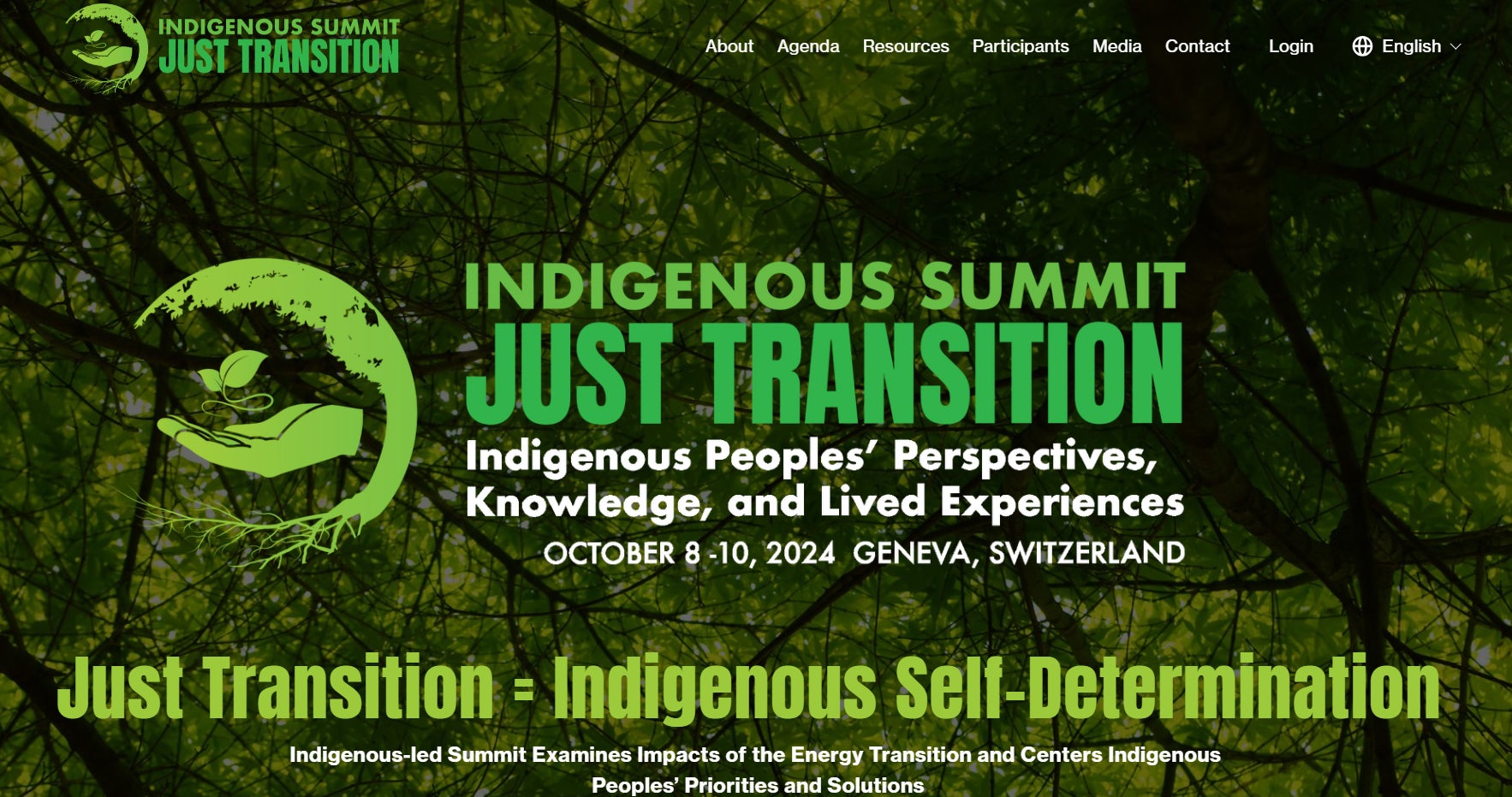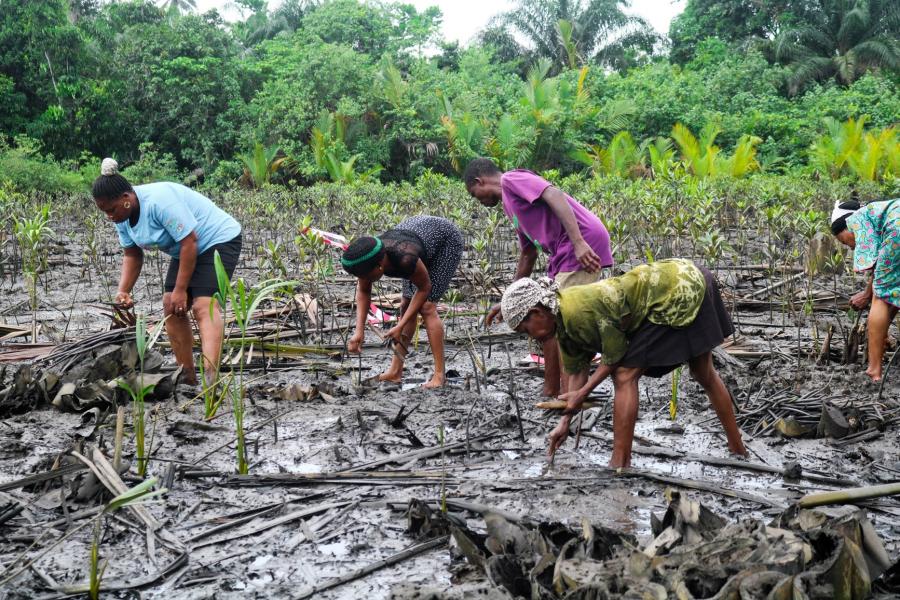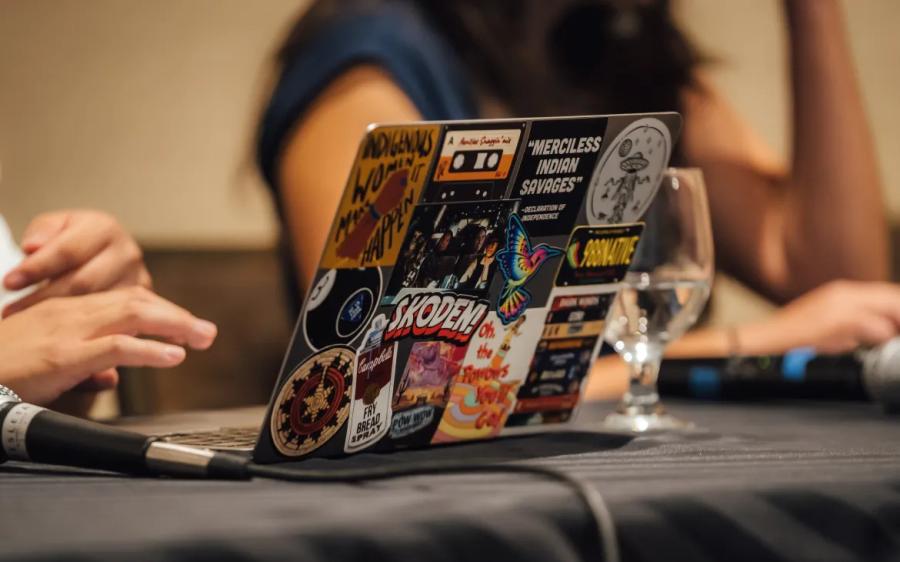
Today, we celebrate the International Day of the World’s Indigenous Peoples. Every day, we honor the sovereignty, richness, and beauty of Indigenous Peoples, languages, and lifeways.
In 1982, the first meeting of the United Nations Working Group on Indigenous Populations was held in Geneva, Switzerland. Since then, many spaces have opened up for Indigenous voices to be heard, and new agreements protecting the rights of Indigenous Peoples have been adopted. While we celebrate these outcomes, we also recognize that the promise of human rights for Indigenous Peoples worldwide remains unfulfilled. In many parts of the world, Indigenous Peoples are still facing grave human rights abuses and challenges.
For example, there is a new wave of threats from extractive industries racing to mine for minerals such as lithium, nickel, cobalt, and copper in the transition to what is being called the “green economy,” but is actually far from sustainable. An estimated 54% of deposits of 30 minerals used in “renewable” energy technologies are located on or near Indigenous Peoples' lands and territories. Once again, Indigenous Peoples are being disproportionately impacted by extractive and destructive industries.
Today, we call on states, policymakers, and corporations to:
- listen to Indigenous people;
- uphold and implement the United Nations Declaration on the Rights of Indigenous Peoples;
- protect the ecosystems we all depend on;
- support land back initiatives allowing Indigenous Peoples to reclaim and steward their homelands; and
- find real solutions to the climate crises that don’t just greenwash increased energy consumption.
Indigenous Peoples, our values, and knowledge systems hold solutions to today’s greatest challenges, including climate change, ecocide, and biodiversity loss. But all too often, we are not listened to, consulted, nor given seats at the tables where important decisions that impact us are being made.
At Cultural Survival, we are working around the world and around the clock to support the priorities of Indigenous Nations and communities that are protecting Mother Earth for generations to come and for the millions of people, plant, animal, and mineral relatives that share our homelands.
Please join us, and if you’re already with us as an Indigenous person or an ally ~ chi yakoke li hoke ~ thank you for your solidarity and support!
Yakoke hoke (thanks so much),
Aimee Roberson (Choctaw and Chickasaw)
Executive Director
4 Calls to Action for International Day of the World's Indigenous Peoples
Take action in support of Indigenous communities who are facing threats from mining for transition minerals.
Two years ago today, Cultural Survival, First Peoples Worldwide, Batani Foundation, Earthworks, and the Society for Threatened Peoples joined forces to launch the SIRGE Coalition dedicated to Securing Indigenous People's Rights in the Green Economy. SIRGE urges governments, corporations, and financial decision-makers to safeguard Indigenous People's rights and self-determination in the energy transition and to avoid the mistakes and harms of past resource development.
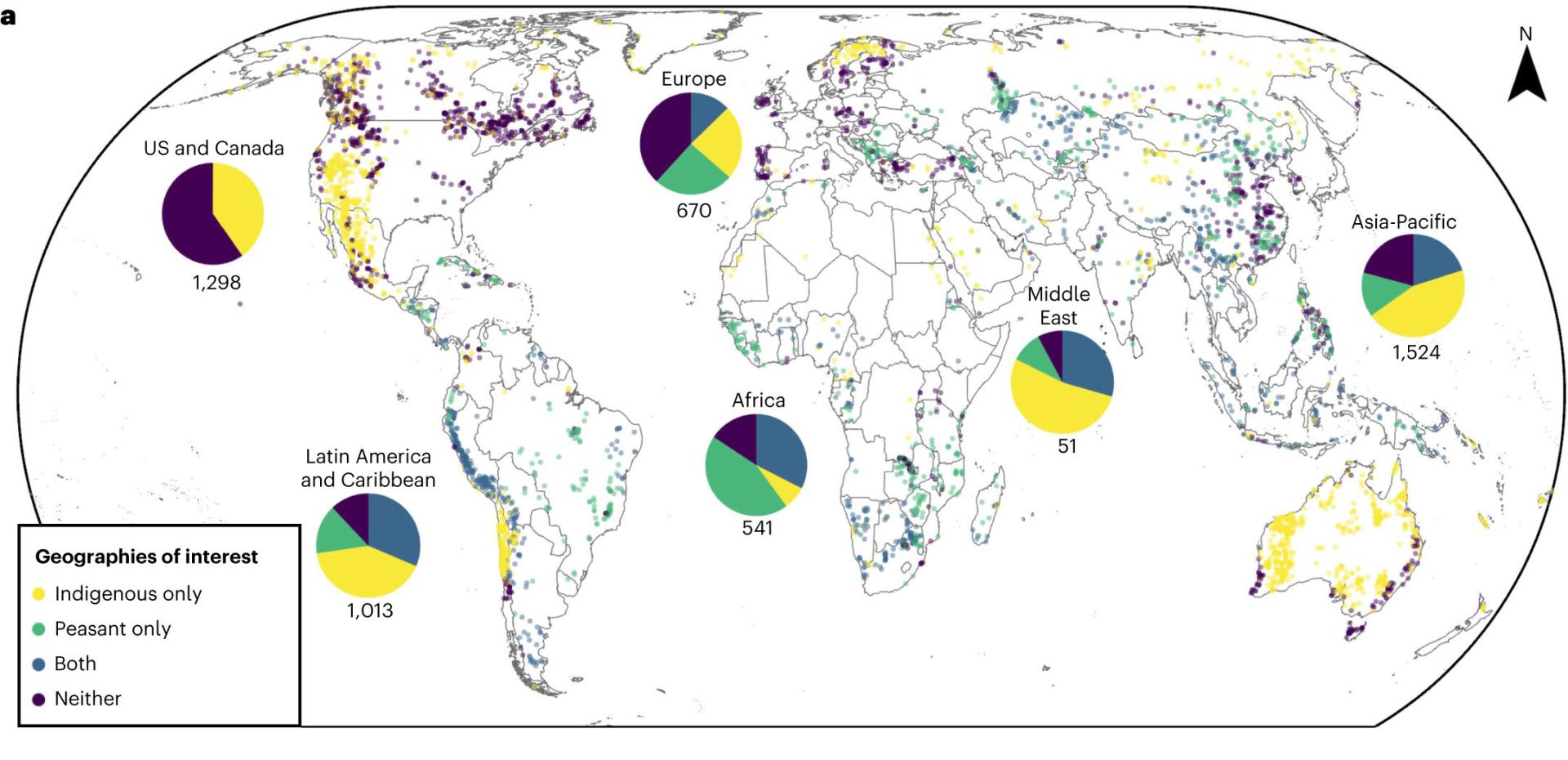
Geographic distribution of mining projects, n = 5,097. Credit: Nature Sustainability (2022).
1. Know the Facts and Share the Statistics!
Demand for minerals such as nickel, lithium, cobalt, and copper are predicted to skyrocket as countries transition from fossil fuel economies. In the absence of a comprehensive assessment of the risks and harms and full participation of Indigenous Peoples, increased mining for these minerals threatens Indigenous Peoples' rights and territories.
Recent statistics:
Indigenous territories contain significant amounts of untapped heavy metal reserves around the world, putting Indigenous lands and communities at risk.
-
Of 5,097 mining projects globally that involve some 30 minerals used in renewable energy technologies, 54% are located on or near Indigenous Peoples' lands and territories.
-
In the United States, 97% of nickel, 89% of copper, 79% of lithium, and 68% of cobalt are located within 35 miles of Native American reservations.
Every day, Indigenous leaders risk their lives to protect their territories from mining.
-
In 2010-2020, there were 495 human rights allegations made against all 115 companies involved in transition mineral extraction.
-
In 2022, 41% of attacks against Indigenous Peoples were related to mining.
About 80% of the world’s remaining biodiversity is managed by Indigenous Peoples, but irresponsible mining is threatening it.
-
A 2020 study found that mining has the potential to impact 50 million square kilometers of Earth’s land surface, with 8% coinciding with Protected Areas, 7% with Key Biodiversity Areas, and 16% with Remaining Wilderness. 82% of this mining is for minerals required for renewable energy technology.
To achieve a just transition to a low carbon economy, governments and companies must observe and implement the rights of Indigenous Peoples, including the right to Free, Prior and Informed Consent, outlined in the United Nations Declaration on the Rights of Indigenous Peoples.
2. Learn about and Spread the Word about the JUST TRANSITION: Indigenous Peoples’ Perspectives, Knowledge and Lived Experiences Summit.
On October 8-10, 2024 in Geneva, Switzerland, the Indigenous Peoples Global Coordinating Committee, in partnership with Securing Indigenous Peoples Rights to a Green Economy (SIRGE) Coalition, is organizing JUST TRANSITION: Indigenous Peoples’ Perspectives, Knowledge and Lived Experiences, an international forum.
"The Summit is a pivotal moment for Indigenous Peoples to come together, share their experiences, and chart a path forward to a more equitable and sustainable future. At its core, the summit seeks to address the urgent need for a just transition, one that respects and upholds the rights and values of Indigenous Peoples,” says Rodion Sulyandziga (Udege), Chair of the Indigenous Peoples Global Coordinating Committee. Learn more.
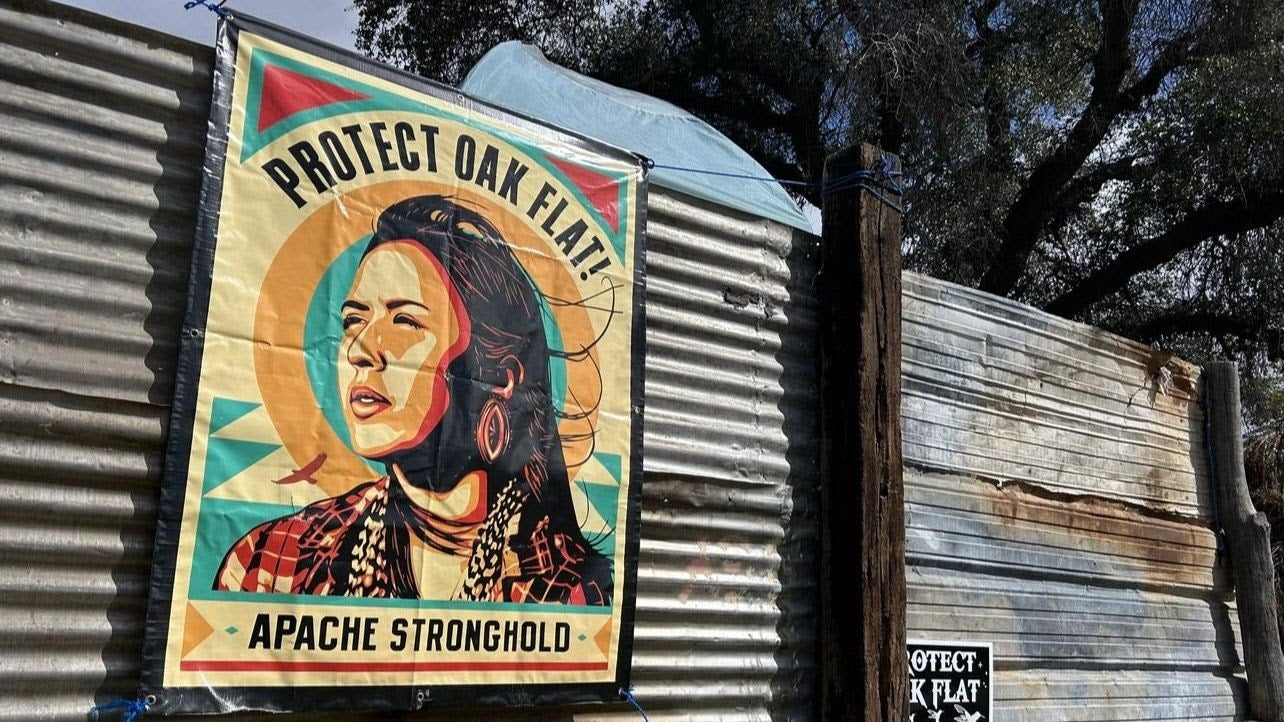
3. Share Stories from Impacted Indigenous Peoples!
Listen to radio programs and podcasts on the impacts of transition mineral mining and the SIRGE Coalition in English, Spanish, Quechua, and Nahuatl from Cultural Survival’s Indigenous Rights Radio.
Read about how mining for transition minerals is affecting Indigenous communities.
- "The Road to Tahua: Journeying to Heart of the Lithium Triangle via Sacred Salt Flats"
- "Reclaiming Sovereignty Through Salt and in Spite of Extraction: A Journey to Ayllu Yaribay"
- "Confronting the Lithium Rush: Salinas Grandes in Danger in Salta and Jujuy, Argentina"
- "Shuar Arutam Maikiuants Community Is the Last Standing Front of Resistance Against Solaris Resources Mega-Mining Project in Ecuador"
- "Westwin Resistance: Indigenous Land Defenders Fighting for their Future in Oklahoma"
- "The Apache Stronghold Standing in the Way of a Massive Copper Mine"
- "Manitoba’s Camp Morningstar Continues Its Fight Against Silica Sand Mining on Sacred Indigenous Lands"
- "Bolivian Government Must Respect the Autonomy of Indigenous Communities"
- "Glencore copper mine contaminates land in Peru"
- "Love of Place Over Lithium: Learning, Connecting, and Valuing Noongar Country"
- "How Indigenous and Quilombola Communities of Araçuaí, Brazil Are Fighting for their Rights in the Energy Transition"
- "Our Sacred Sites Are More Important than a Lithium Mine"
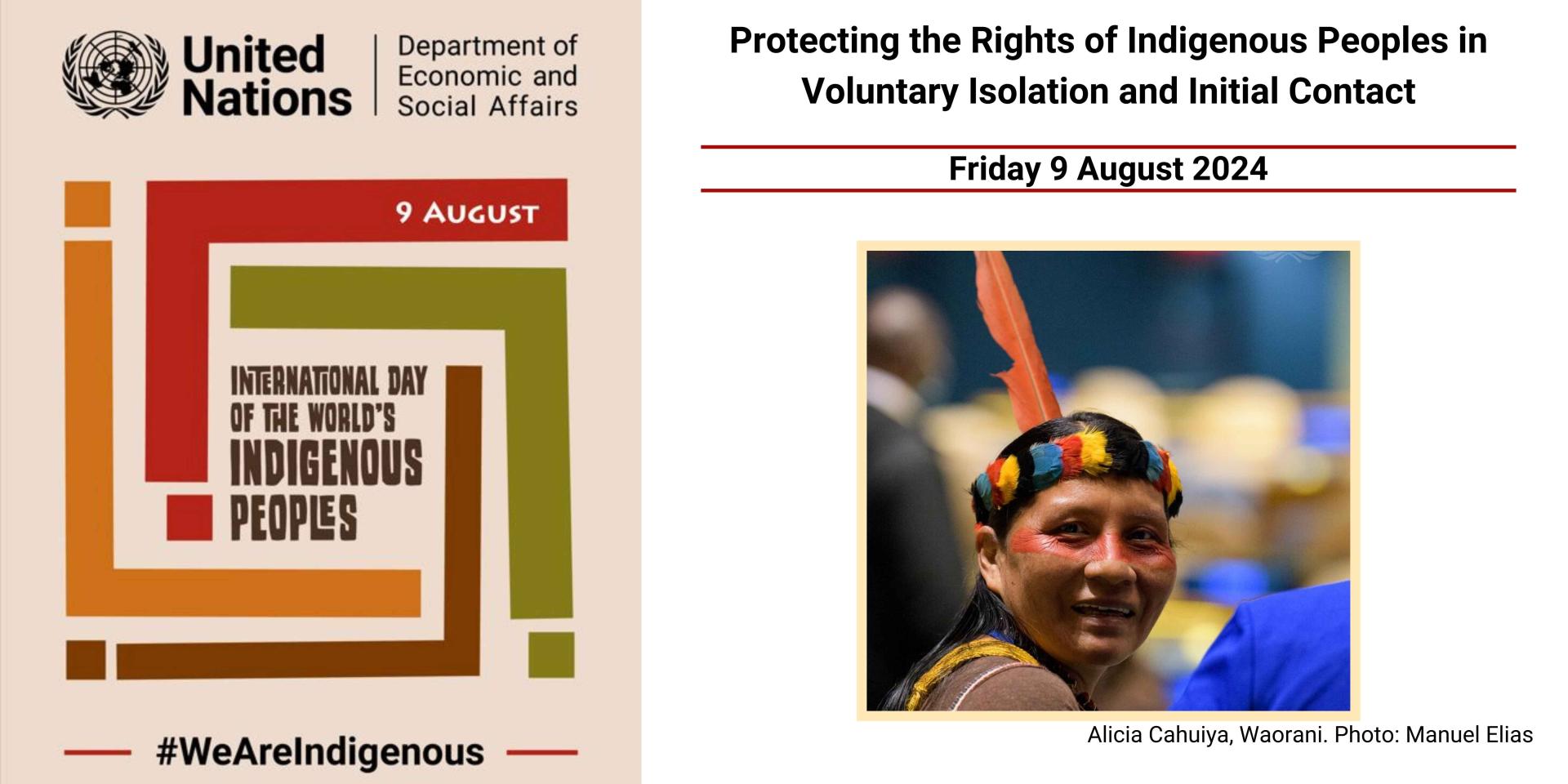
4. Learn more about International Day of the World's Indigenous Peoples!
The annual International Day of the World's Indigenous Peoples launches with a virtual commemoration on Friday, 9 August 2024 from 9:00 am to 10:30 am Eastern Standard Time (EST). This year's theme is “Protecting the Rights of Indigenous Peoples in Voluntary Isolation and Initial Contact”.
Watch it here:
Read: The Original Guardians of Nature Are Doing Their Part. Are the Rest of Us?
